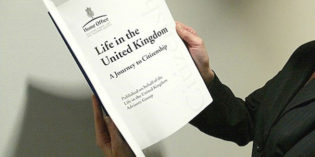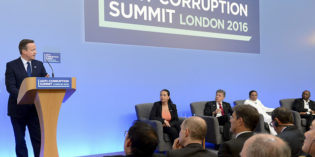Author Archive: Democratic Audit UK

The politics of language and prejudice: How the New Primary Curriculum for English is outdated
Matt Carmichael argues that Conservative policy regarding language tests in English is outdated. The social attitudes which underpin the tests are divisive and dangerous and have the effect of promoting prejudice. Similar PostsPromoting English learning is an important first step, but much more needs to be done to support integrationBook Review: Class by Will AtkinsonBook Review | […]

Thanks to the referendum, the tyranny of the majority has prevailed
Many people living in the UK, and some Britons outside it, had no vote in the referendum. Scotland and Northern Ireland chose to Remain but will be forced to leave. Arash Heydarian Pashakhanlou argues the UK has succumbed to the tyranny of the majority thanks to the decision to put EU membership to a referendum. […]

Using technology to inject the demos back into democracy
Possibilities to ‘take action’ and participate in our current system may exist, but they are rarely effective.While individuals may be able to express their opinions, there is no mechanism in place for translating those opinions into action. In this light, Roslyn Fuller writes online deliberation allows us to take a leap towards much deeper democracy. Similar PostsBrexit […]

As both major parties struggle with internal divisions, it is crucial to engage with different facets of party cohesion
As both the Conservatives and Labour are confronted with ideological and organisational divisions that undermine their efficiency and jeopardise the foundations of the responsible party model, Caroline Close writes that understanding how (old and new) values, ideas and conception of democracy affect party members’ relationship to their party, within and beyond the legislative arena, is […]

Designing a new parliament with women in mind
Following the appointment of the UK’s second female Prime Minister, Jennifer Thomson assesses progress on gender equality in British politics. In particular, she considers how a restored and renewed Palace of Westminster could introduce changes to both the physical environment and political norms which could help address historical underrepresentation of women in Parliament. Similar PostsThis May be Tory feminism: […]

Why applying for citizenship is an anxiety filled process – and not just for applicants
As we consider what post-Brexit citizenship might look like, it is crucial to understand the pervasiveness of anxiety and its integral role in shaping policy processes. Here, Anne-Marie Fortier discusses how anxiety is attached especially to English language ability for applicants, whilst also highlighting the role it plays for those on the other side of the process: the registrars checking applications for […]

From “Watchdog” to “Attackdog”: Media depictions of Jeremy Corbyn are an affront to democracy
A healthy democracy requires a watchdog in its press — not an ‘attackdog’, ‘snarling’ and ‘barking’ at an elected politician. Yet this is how Jeremy Corbyn is being treated by the media, explains Brooks DeCillia. He outlines the findings of LSE research that show how the Leader of the Opposition is being delegitimased by the British […]

Is there a future for referendums?
The EU referendum has led to doubts about referendums as an instrument of public policy. Albert Weale suggests that the good conduct of referendums depends on the question being clear and voters having easy access to the relevant evidence. The EU referendum failed both of these tests. Future referendums should be on well-defined questions and steps should […]

Anti-corruption after Brexit: What is left of David Cameron’s legacy?
David Cameron’s government frequently emphasised the need to tackle corruption, both within the UK and abroad. Daniel Hough assesses how this picture is likely to change following Britain’s decision to leave the EU and the appointment of Theresa May as Prime Minister. He writes that with Brexit posing a number of challenges for May’s government, […]

‘Post-truth’ politics are a debasement of standards in public life
Verbal dexterity, inconsistency and ‘spin’ are part and parcel of normal politics but the exaggerations and distortions of the EU referendum campaign has led to concerns about ‘post-truth’ politics. Nicholas Allen and Sarah Birch write there is a need for someone to provide a moral lead, and argue the Committee for Standards in Public Life […]



 Democratic Audit's core funding is provided by the Joseph Rowntree Charitable Trust. Additional funding is provided by the London School of Economics.
Democratic Audit's core funding is provided by the Joseph Rowntree Charitable Trust. Additional funding is provided by the London School of Economics.